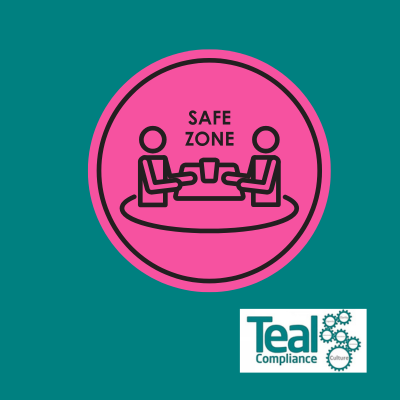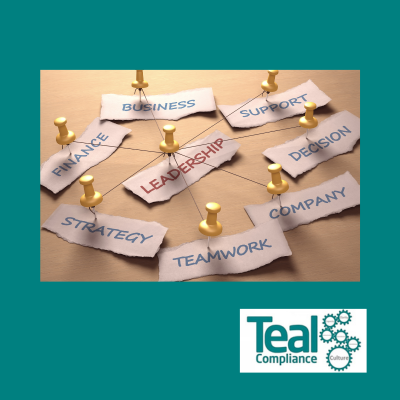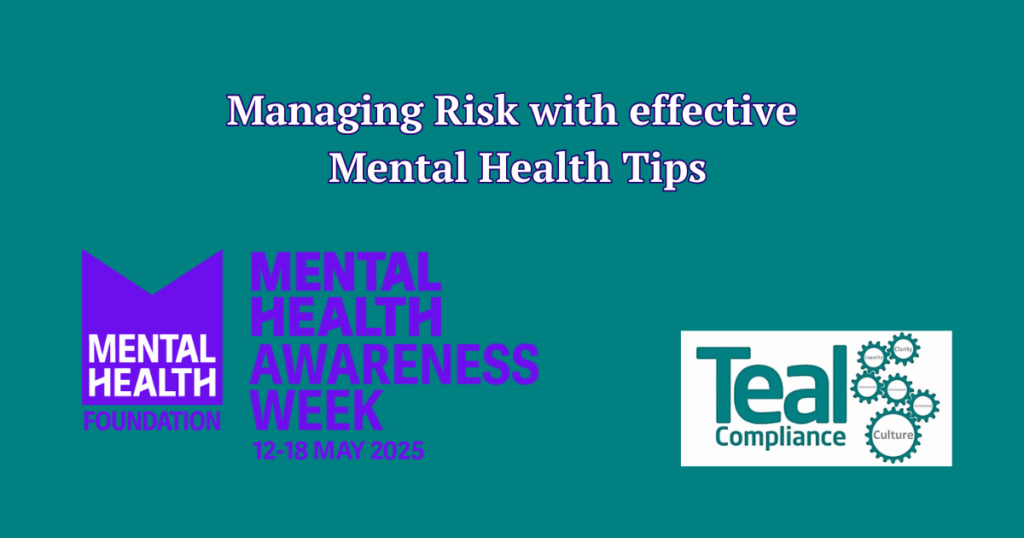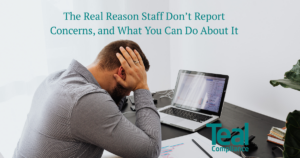Reminder that we are not only your training partner but also your outsourced compliance and regulatory partner – find out more here.
The Law Gazette flagged up how the SRA’s got their eye on AML breaches this April, and seeing as it’s Mental Health Awareness Week an’ all, we thought we’d chip in with our two pence. Looking after yourselves and your staff isn’t just a nice thing to do, it’s a smart move for keeping your firm on the straight and narrow with AML and regulatory compliance.
Let’s make sure we’re not ending up on the SRA’s naughty step by keeping an eye out for each other.
With that in mind, here are our Handy Hints for risk management when it comes to culture and mental health.
Make it Safe to Talk - Risk Management Tip No. 1
We strongly recommend that you organise (yes, even prioritise) firm-wide discussions or workshops during Mental Health Awareness Week specifically linking well-being to work performance and error reduction.
We can’t emphasise enough that stress, anxiety, and burnout can significantly impair concentration and judgement. We’ve all been there at different times in our working lives. Working under pressure and in a stressful environment increases the risk of overlooking crucial compliance steps or making mistakes in complex AML processes like Source of Funds checks or client due diligence.
Working in a healthy culture where staff feel comfortable acknowledging when they are struggling is so important! LawCare Charity insights show that those under pressure or in a culture where they are afraid to talk in a safe environment are potentially more likely to make errors due to mental fatigue or stress.
If you don’t believe us, just are your PII contacts!

Promote Practical Wellbeing Strategies for High-Pressure Tasks - Risk Management Tip No. 2
Practical tips and tools to manage stress and improve focus, especially during peak workload periods (e.g., completion deadlines in conveyancing) can be really helpful.
This could include mindfulness exercises, time management techniques, or signposting to Employee Assistance Programs (EAPs) if you have them. Often we see in our audits that targets cause stress, together with the billable hour and WIP not being paid. Do you have mentoring systems in place to alleviate too many matters for one person? It’s easy to take your eye off the ball on one matter, where the SOF hasn’t been checked because the client has been with the firm for many years. Are they a priority? Yes, their checks are a priority, just as practising the law is.
When it comes to AML and regulatory compliance, why not frame the above strategies as tools to enhance accuracy and reduce errors in high-stakes compliance tasks? For example, really simple things like taking short breaks can improve concentration during complex AML risk assessments.
Lead by Example - Risk Management Tip No. 3

As law firm partners we encourage our clients who are senior partners, together with the MLRO/COLPs, to actively participate in Mental Health Awareness Week initiatives and openly discuss their own well-being.
When senior leaders demonstrate that mental health is a priority, it sends a powerful message that compliance and well-being are both valued.
Sending the message throughout the business (and your firm is a business), can reduce the stigma associated with seeking support and encourage staff to prioritise their own mental state. If you know your boss prioritises well-being and family for example, it ultimately leads to more careful and considered compliance practices overall.
By leading by example, senior management teams can foster a supportive and open culture where well-being is seen as integral to professional responsibility at all levels.
Empower with Knowledge - Risk Management Tip No. 4
Why not share resources (internal or external) during the week that explain the connection between mental health and cognitive function, particularly in detail-oriented tasks like regulatory compliance. The NHS has their 10 Stress Busters HERE .
Lockton has some great blogs on Mental Health and how a healthy culture helps keep a law firm’s claims at arm’s length.
In one of their articles, they talk about Psychological Safety.
“Supervision plays a vital role in helping supervisees feel psychologically and emotionally supported at work. In addition to supervising the quality of work, supervisors should encourage discussions about any worries, concerns, near misses, or development needs that their supervisees have. Creating a psychologically safe environment where supervisees feel confident to raise questions or concerns with their supervisor will not only help to mitigate ethical risks but also identify pressures that might be having a negative impact on wellbeing. “
Why HR and Risk Management Teams Should Collaborate on Wellbeing READ HERE
Did you know that conditions like anxiety or depression can affect memory, focus, and the ability to follow complex procedures, such as SAR reporting or adherence to SRA Accounts Rules?
As our own CEO does with Team Teal, why not educate staff on why prioritising their mental health isn’t just a personal matter but a crucial element of maintaining a safe and compliant work environment?
Thanks for reading and if you have any questions on how mental health and compliance are partners for the good, or would like to take advantage of our ASK TEAL service, you can get in touch HERE.
Team Teal




